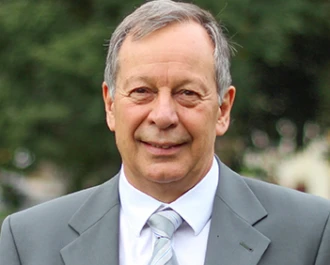
New research shows the use of immunotherapy on people with early-stage Triple Negative Breast Cancer (TNBC) before surgery could mean less chemotherapy is needed as part of a person’s treatment.
TNBC is an aggressive tumour that is more likely to affect younger women. It has a faster growth rate, a higher risk of spreading to other parts of the body and of recurrence than other breast cancer types. TNBC tumours do not produce the protein Human Epidermal Growth Factor Receptor 2 (HER2) and lack receptors for the hormones estrogen and progesterone which makes it difficult to target this type of breast cancer.
Over a hundred women from 14 different treatment centres in Australia, New Zealand and Italy participated in the study by being involved in a clinical trial. In the clinical trial, people with TNBC received immunotherapy and chemotherapy before their operation, with the goal that this treatment combination could give the same outcomes but with fewer side effects.
The clinical trial was led by medical oncologist and breast cancer researcher from the Peter MacCallum Cancer Centre in Melbourne, Professor Sherene Loi. Professor Loi is an NBCF Endowed Chair, a unique program which consists of 10-year research grant awarded to bright stars in Australian breast cancer research, for a total value of $5 million which includes a co-contribution from the Peter MacCallum Cancer Centre. This program allows researchers greater stability and to advance important research endeavours to bring benefits to men and women affected by breast cancer much faster.
The study results, published as a late breaking abstract at the 2023 San Antonio Breast Cancer Symposium in the United States, showed that adding immunotherapy to chemotherapy in early-stage TNBC patients before surgery is safe and effective.
The immune system plays an important role in the growth and progression of many tumour types, and the types of immune cells in and around the tumour (also called the immune microenvironment) can influence the prognosis of some types of breast cancer, particularly TNBC. Immunotherapy is a cancer treatment that augments the patient’s own immune response to fight cancer.
“These treatments may be less toxic, providing the chance for better and prolonged quality of life.” Professor Loi explains.
Findings from the clinical trial showed that over 50% of the women in the study with early-stage TNBC had no evidence of cancer in the breast and lymph nodes at surgery after receiving the 12-week chemotherapy-immunotherapy treatment combination. Furthermore, in women with tumours that were classified as ‘immunotherapy sensitive’ meaning they have high lymphocytes (a type of immune cell) or high amounts of the protein PD-L1, the response rate was even higher (67% and 71% respectively).
This is a very promising clinical trial, and the next step is to confirm the results and efficacy of the immunotherapy as a combination treatment option in a larger study. The participants from the clinical trial are involved in a long-term follow up study, where researchers will investigate how this new therapy affects the rate of recurrence and longer-term outcomes.
For men and women with TNBC where there are few targeted treatments available, these results are a significant step towards providing these individuals with more targeted treatment options – something which is key to ending deaths from breast cancer.
More News Articles
View all News


